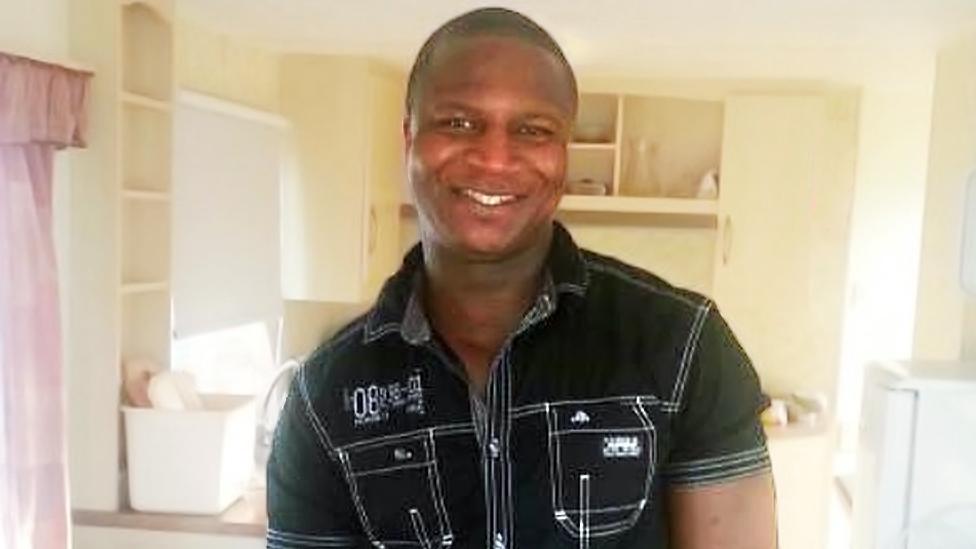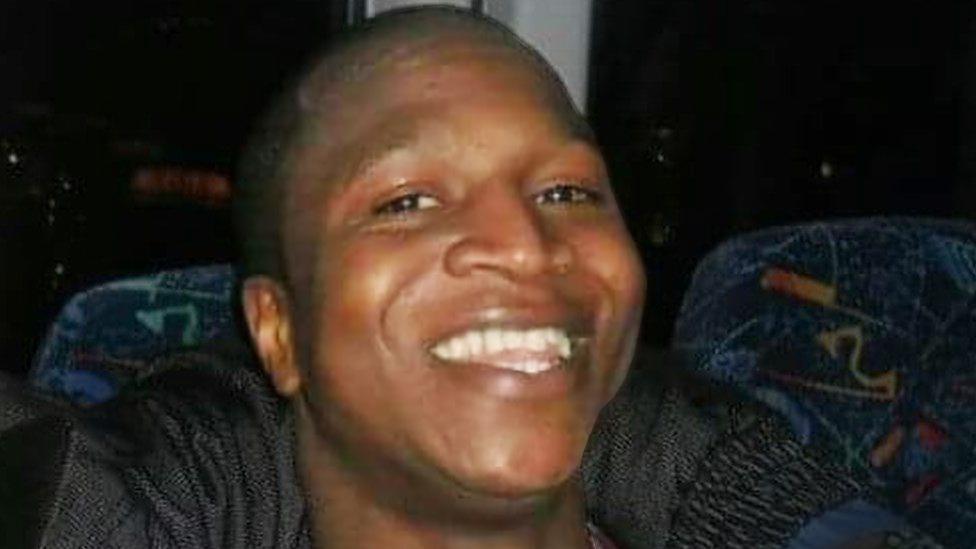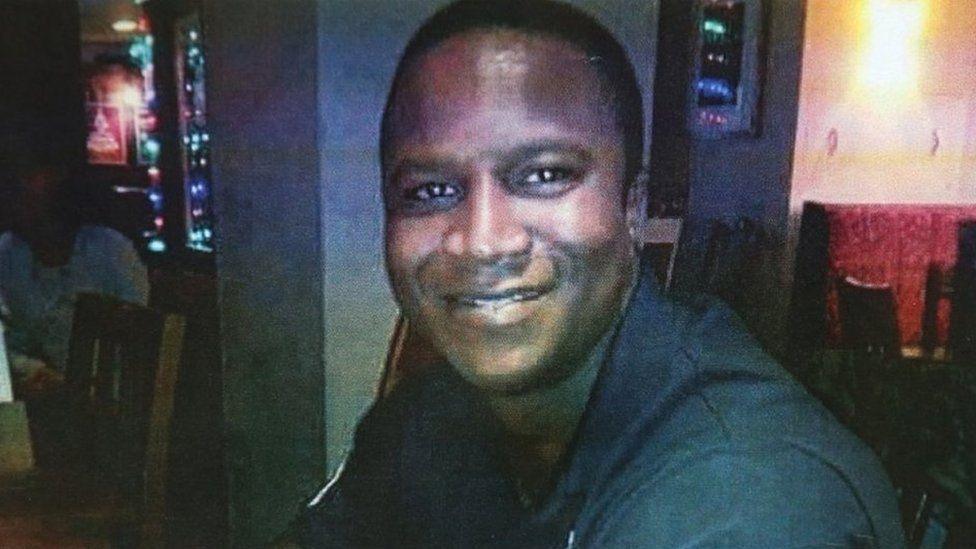Sheku Bayoh had mental disorder from drugs - expert
- Published

Sheku Bayoh was training to be a gas engineer and was father to two boys
An expert has said that Sheku Bayoh had a drug-induced psychiatric disorder when he died in police custody.
The public inquiry into Mr Bayoh's death in Kirkcaldy in 2015 heard that he had taken ecstasy and alpha-PVP.
Consultant psychiatrist Dr Maurice Lipsedge said that alpha-PVP is a powerful stimulant which can cause extreme paranoia and violent behaviour.
He said psychostimulant intoxication can lead to death if the person is being restrained.
Dr Lipsedge said the rapid changes in Mr Bayoh's mental state were consistent with someone under psychostimulant intoxication.
The trainee gas engineer died after he was restrained by around six police officers who were called to Hayfield Road in Kirkcaldy, Fife on 3 May 2015 following reports of him acting erratically.
The inquiry is investigating the circumstances of the 31-year-old's death and whether race was a factor.
It previously heard from the pathologist who examined Mr Bayoh after he died, who confirmed it was a "sudden death in a man intoxicated by MDMA and alpha-PVP whilst being restrained".
Angela Grahame KC, lead counsel to the inquiry, asked expert witness Dr Lipsedge about the impact alpha-PVP can have on someone.
He described it as a "very powerful stimulant" and "like a very, very potent form of amphetamine".

Sheku Bayoh died after being restrained by officers in Kirkcaldy
Dr Lipsedge said: "We know that amphetamine has the potential to cause extreme paranoia fairly quickly, that's to say within 20 minutes, 45 minutes, it acts quickly.
"It doesn't do that to everybody, but in a person who happens to be susceptible then there can be a paranoid reaction which can be extreme, and that's what I think happened to Mr Bayoh."
He was then asked how someone who had taken the drug might appear and what their state of mind might be.
He said: "The adverse psychiatric effect is suspicion moving into paranoia, intense fear that other people want to harm you, and in Mr Bayoh's case it's clear that there was a progression from suspecting that his friends were having a conversation about another person who wasn't present.
"Mr Bayoh thought that they were talking about him, and then the situation escalated so that he began to think his friends were actually against him."
The inquiry also heard about a retrospective psychiatric diagnosis Dr Lipsedge made in relation to Mr Bayoh in a report he submitted to the Police Investigations and Review Commissioner (Pirc).
Ms Grahame said: "You talked about how the rapid changes in Mr Bayoh's mental state and behaviour from apparent normality were consistent with psychostimulant intoxication," to which Dr Lipsedge replied: "That's correct."
Dr Lipsedge said psychostimulants are drugs like amphetamines and cocaine and the group of drugs called cathinones which have an "excitatory" effect on the brain and nervous system.
However he said there can also be the risk of cardiac arrest if someone is restrained having taken such drugs.
Dr Lipsedge was also asked about Mr Bayoh's potential state of mind when police arrived at the scene.
He said that a person in a state of paranoia is "highly suspicious" of others, including people in authority.
The witness said sometimes the appearance of somebody in a uniform "exacerbates a paranoid state".
He also mentioned ethnicity, although stressing this would be speculation, and said: "It is possible that Mr Bayoh had experienced discrimination and that might have been a factor when he was approached by white police officers."
The inquiry before Lord Bracadale in Edinburgh continues.
Related topics
- Published10 May 2023

- Published9 May 2023

- Published2 March 2023
